The Doctoral Program in Industrial and Organizational Psychology at the University of Central Florida educates and trains its students “to generate and integrate scientific and professional knowledge, attitudes and skills so as to further psychological science, the professional practice of psychology, and human welfare. The graduate of this training model is capable of functioning as an investigator and as a practitioner, and may function as either or both, consistent with the highest standards in psychology” (National Conference on the Education and Training of Scientist-Practitioners for the Professional Practice of Psychology, 1990, pp. 7-8). Our departmental mission statement directs us to provide high quality education to include “the dissemination of state-of-the-field theoretical and empirical information, training in the methodological, statistical, and technical skills necessary to conduct psychological research, and practice in the application of psychological knowledge to real-life problems.” Our doctoral program aspires to achieve excellence in research training and to contribute to and perpetuate psychological science and practice through faculty and graduate student involvement in scholarly and professional activities. Our faculty and graduate students advocate for initiatives that affect the profession of psychology and the welfare of individuals and groups, and are active members of professional organizations and contributors to psychological science.
The Ph.D. track in Industrial and Organizational Psychology provides students with training that is consistent with the scientist-practitioner model. As a result of this training students will be prepared to pursue rewarding careers in either academia (university-based teaching and research) or industry (e.g., consulting). I/O students receive training in work motivation theory, organization theory, organizational development theory, attitude theory, career development theory, decision making, human performance/human factors, assessment of individual differences, small group theory, performance appraisal and feedback, criterion theory and development, personnel selection, placement and classification, research methods, statistical methods, job and task analysis, individual assessment, and training theory, program design and evaluation.
At a glance:
- Our program ranks 4th in research productivity (i.e., number of publications) and 2nd in presence at SIOP out of all I/O Ph.D. programs (Beiler, Zimmerman, Doerr, & Clark, 2014)
- The program began in 2000 and has graduated 67 students (47% now work in academic/research positions, 53% now work in applied positions)
- We have 34 current students
Degree Requirements
The doctoral program in Industrial and Organizational Psychology requires approximately four years of full-time study beyond the baccalaureate and approximately three years beyond the master’s. The first few years are devoted to course work and the final year to the doctoral dissertation. After completing all required course work students are required to pass a Candidacy Examination. This examination may be taken a maximum of two times. Failure to pass the examination on two occasions will result in the student being dismissed from the program.
View CatalogProgram Admissions
Application Deadline is December 1st
The UCF Psychology Department coordinates the admission process with the UCF Graduate Studies office. In order to enroll in graduate classes, students must have obtained a baccalaureate or higher degree, prior to the start of the term for which the student is admitted, from a regionally accredited institution or from a recognized foreign institution. Students without a baccalaureate or higher degree from an accredited institution (or equivalent) are not admitted to graduate degree programs, graduate certificate programs, or graduate nondegree status.
Apply NowMailing Address
UCF College of Graduate Studies
Millican Hall 230
PO Box 160112
Orlando, FL 32816-0112
Institution Codes
GRE: 5233
GMAT: RZT-HT-58
TOEFL: 5233
ETS PPI: 5233
Program Goals:
Consistent with the Department’s Mission Statement, the doctoral program in Industrial and Organizational Psychology’s overall goals are to: (a) train and educate leaders in psychology at the doctoral level within the scientist-practitioner tradition; (b) expand and disseminate scientific knowledge about behavior at work through publications in scientific journals, conference presentations, and teaching; (c) strive to apply psychological principles to solve workplace problems and thus improve the quality of individuals’ work and non-work lives; and (d) produce psychologists who understand the ethics, principles and practice of psychology. Within our broad vision to become renowned scientist-practitioners, our program seeks to enhance scientific understanding of the following three areas: (a) training and team performance, (b) occupational health, and (c) human analytics, big data, and research methods. The overall goals of the training program are consistent with that of the Mission Statement of the Department, the College of Arts and Science, Graduate Studies, and the University.
Overview of Curriculum Goals:
The Industrial and Organizational Psychology Doctoral Program curriculum plan (a) provides extensive coverage of and a strong grounding in the substantive core areas of psychology, (b) develops a foundation of knowledge relevant to critical thinking, scientific methods, and data analysis, (c) develops general and specific competency areas specified by SIOP, (d) provides multiple opportunities for students to develop the necessary skills and ambition to generate new knowledge through ongoing research and scholarly activities, (e) develops a foundation of knowledge and requisite skills in career-relevant domains. The integration of science and practice is achieved in several ways. Students are actively engaged in ongoing activities related to research such as literature reviews, the design and implementation of empirical investigations, data collection and analysis, psychometric design and evaluation of measures, and program evaluation.
Training Emphasis:
The Education and Training Committee of the Society for Industrial and Organizational Psychology (Division 14 of the American Psychological Association) prepared Guidelines for Education and Training at the Doctoral Level in Industrial-Organizational Psychology (hereafter called, “Guidelines”). The UCF Industrial and Organizational Psychology Ph.D. program is designed to train students according to these American Psychological Association-approved Guidelines.
The Guidelines follow the scientist-practitioner model and a competency-based approach. The Guidelines state that, “taking the scientist-practitioner model seriously means that doctoral education needs to focus on both the theory and application associated with all content areas” (p. 3). All students, regardless of whether they expect to pursue academic or applied careers, must be knowledgeable in theory, research methods, and the application of the content areas to applied practice. The competency areas to be trained include:
- Consulting and Business Skills
- Ethical, Legal, and Professional Context of I-O Psychology
- Fields of Psychology
- History and Systems of Psychology
- Research Methods
- Statistical Methods/Data Analysis
- Attitude Theory, Measurement, and Change
- Career Development
- Consumer Behavior
- Criterion Theory and Development
- Health and Stress in Organization
- Human Performance/Human Factors
- Individual Assessment
- Individual Differences
- Job Evaluation and Compensation
- Job/Task Analysis and Classification
- Judgment and Decision Making
- Leadership and Management
- Organization Development
- Organization Theory
- Performance Appraisal and Feedback
- Personnel Recruitment, Selection, and Placement
- Small Group Theory and Team Processes
- Training; Theory, Program Design, and Evaluation
- Work Motivation
Students should familiarize themselves with the description of each competency area as described on the SIOP website (www.siop.org). Students will develop knowledge and skill in these 25 competency areas through formal course work, internship, independent study, and research experiences. As a major urban university, our program takes advantage of and builds upon a multitude of university and community partnerships consistent with the mission of UCF.
Internships & Employments
Applied
- Adaptive Assessment Services
- AlignMark
- Aptima, Inc.
- Army Research Institute
- Bank of America
- Booz Allan Hamilton
- Camber Corporation
- Capital One
- Center for Disease Control and Prevention (CDC)
- CHI Systems, Inc.
- CIC Planning Group, Inc.
- City of Jacksonville
- City of Lakeland
- City of Orlando
- Cognitive Performance Group
- CVS Caremark Corporation
- Deloitte
- Department of Defense
- Disney
- Educational Testing Services
- Exelon
- FedEx Management Partners
- Ford Motors
- General Dynamics
- IBM
- Institute for Simulation and Training
- JetBlue
- KAEGAN Corporation
- Kenexa
- Parks Consulting, Inc.
- Lockheed Martin
- Marriot Vacation Club
- Mountain States Employers Council
- Northeast Florida Education Consortium
- NASA
- NAWCTSD
- Northrop Grumman
- Office of the Assistant Secretary for Preparedness and Response
- Orange County Sherriff’s Office
- Orlando Regional Hospital
- Orlando Utilities Commission
- Personnel Decisions, Inc.
- Publix
- RFK and Associates
- RSK
- Sears
- Siemens
- TalentKeepers
- The Travelers Companies
- Universal Studios
- S. Army Medical Research and Materiel Command
- S. Navy
- Walmart
- WLH Consulting
- Workforce Central Florida
Academic
- University of Akron, Department of Psychology
- Clemson University, Department of Psychology
- Florida Institute of Technology, College of Psychology
- Georgia Institute of Technology, School of Psychology
- Johns Hopkins University, School of Medicine
- Rutgers, John J. Heldrich Center for Workforce Development
- Ozyegin University, Department of Psychology
- Seattle Pacific University, Department of Psychology
- Quinnipiac University, School of Business
- University of North Texas at Dallas, Department of Business
- University of South Florida, Department of Psychology
- University of Texas at Arlington, Department of Psychology
- Virginia Commonwealth University, School of Medicine
- Hofstra University, Department of Psychology
- Roosevelt University, Department of Psychology
Faculty in I/O Psychology
-

Nathan Bowling
Professor/Associate Director of the Ph.D. Program in I/O Psychology -
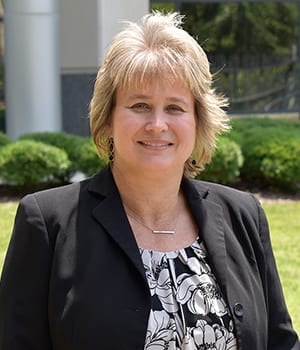
Shawn Burke
Research Professor -
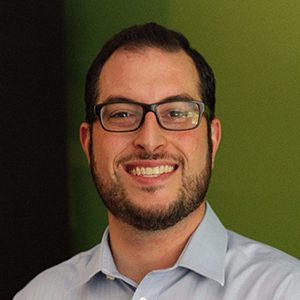
Michael Chetta
Lecturer/Director of the M.S. Program in I/O Psychology -
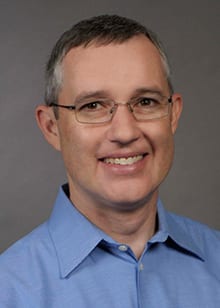
Mark Ehrhart
Professor/Director of the Ph.D. Program in I/O Psychology -

Barbara Fritzsche
Associate Professor -
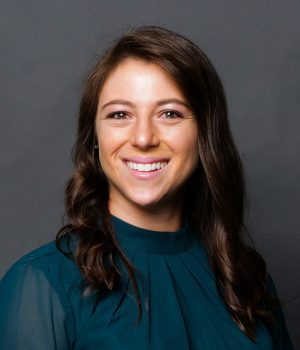
Chelsea LeNoble
Assistant Professor -
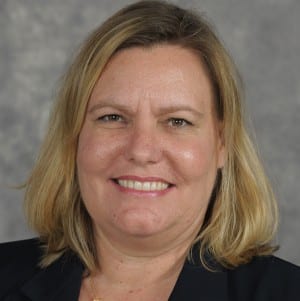
Victoria Pace
Senior Lecturer
College of Sciences Faculty Fellow for Graduate Studies -

Mindy Shoss
Professor -
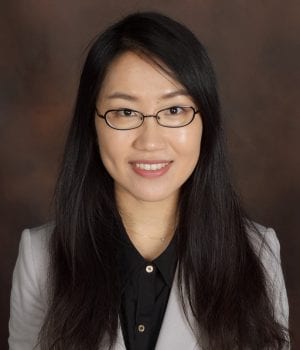
Shiyang Su
Associate Professor
Office Support
Program Contacts
If you have any questions regarding the in Ph.D. Program in Industrial Organizational Psychology, please contact:
Donate

Industrial/Organizational Psychology General Fund
Making a gift to the Industrial/Organizational (I/O) Psychology General Fund is a great place to begin supporting I/O psychology at UCF. Funds are used for student recruitment, speakers, alumni events, and to support program research initiatives. Your gift allows program leadership to have funds it needs to address needs as they arise and to accomplish the program’s strategic priorities.
To give to this fund please, please click “Give Now” button below and type “I/O Psychology General Fund” in the comments section.
Give Now


